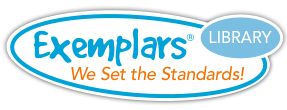Grade 2 - Problem Solving with Money Unit
Standards covered:
- 2.5 Number and operations
-
2.5A
Determine the value of a collection of coins up to one dollar.
-
2.5B
Use the cent symbol, dollar sign, and the decimal point to name the value of a collection of coins.
The Problem Solving with Money Unit involves knowing the relationship between U.S. coins, how to use skip counting and other methods to find the value of a collection of coins, and answer questions such as:
- If you have saved a given amount of money and you know a toy costs a certain amount, how can you figure out how much more you need to save to buy the toy?
- If you have a collection of coins worth 30 cents and put a quarter in your bank every week, how much money will you have in three months?
Summative Assessment Task
Students determine if two children have the same amount of money.
Instructional Tasks/Formative Assessments
Students determine if $1.50 is enough money to buy pom-poms at the store.
Students find two different combinations of pennies and nickels to reach 15 cents.
Students find all possible coin combinations that add up to 17 cents.
Students find different combinations of coins to equal specific amounts.

The N/A classification refers to TEKS Standards that cannot be assessed through problem solving.
For this reason, tasks have not been included for these particular standards.
K.7A K.7B K.9B K.9C K.9D